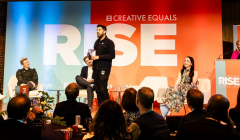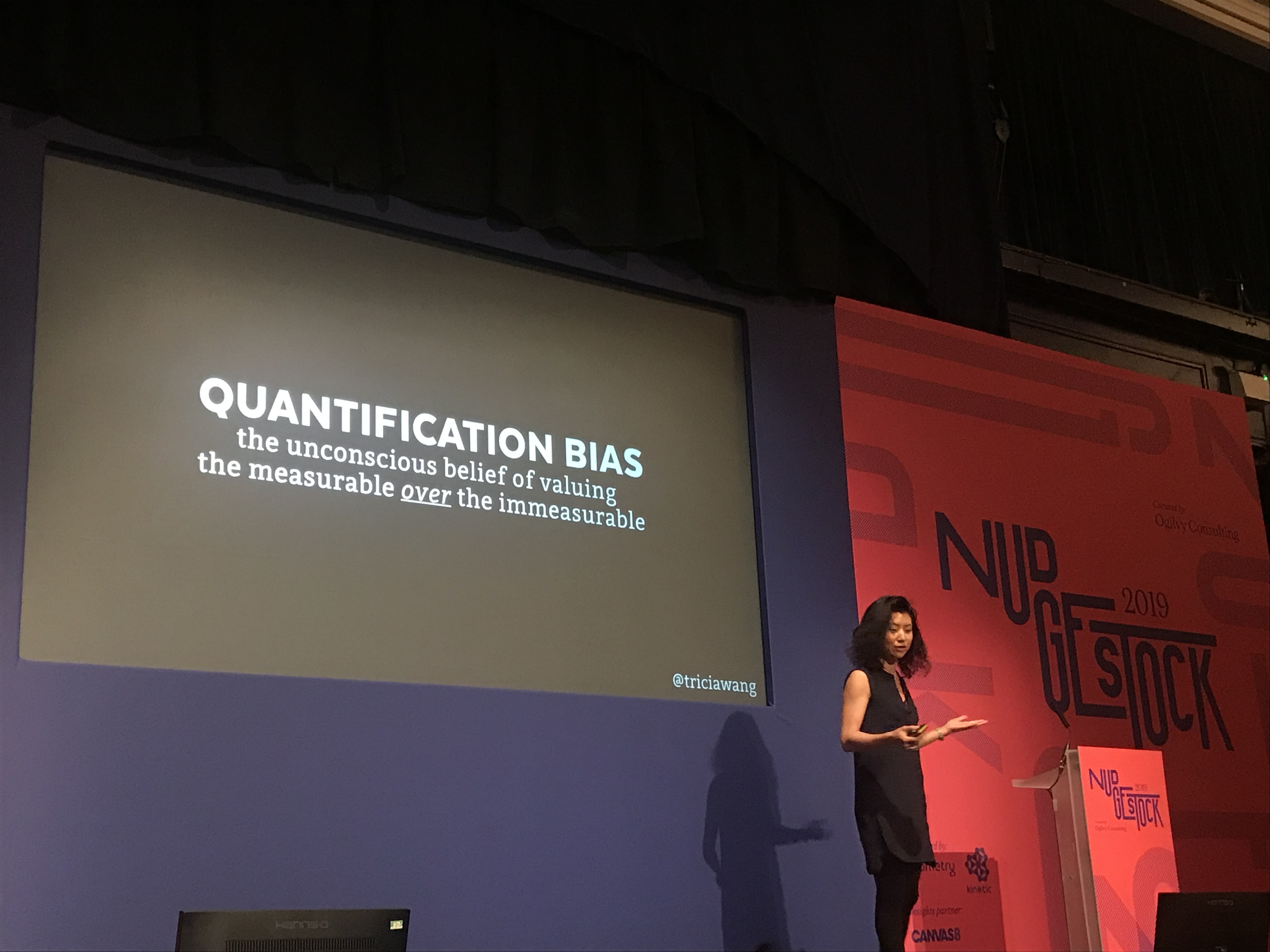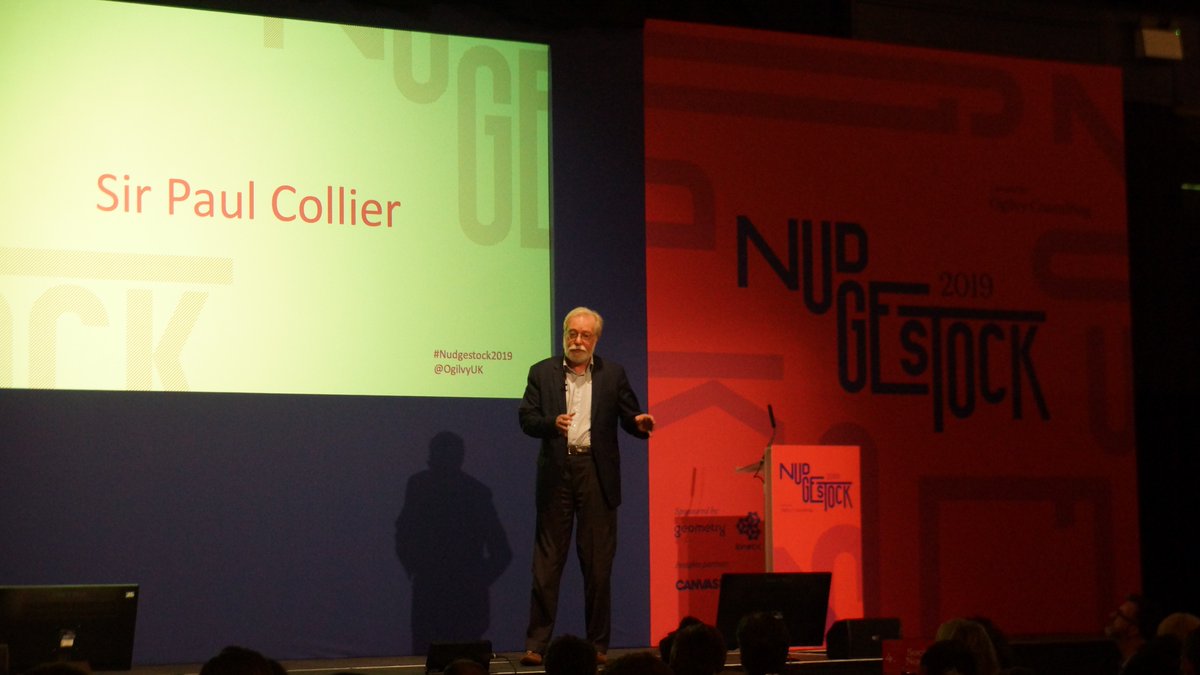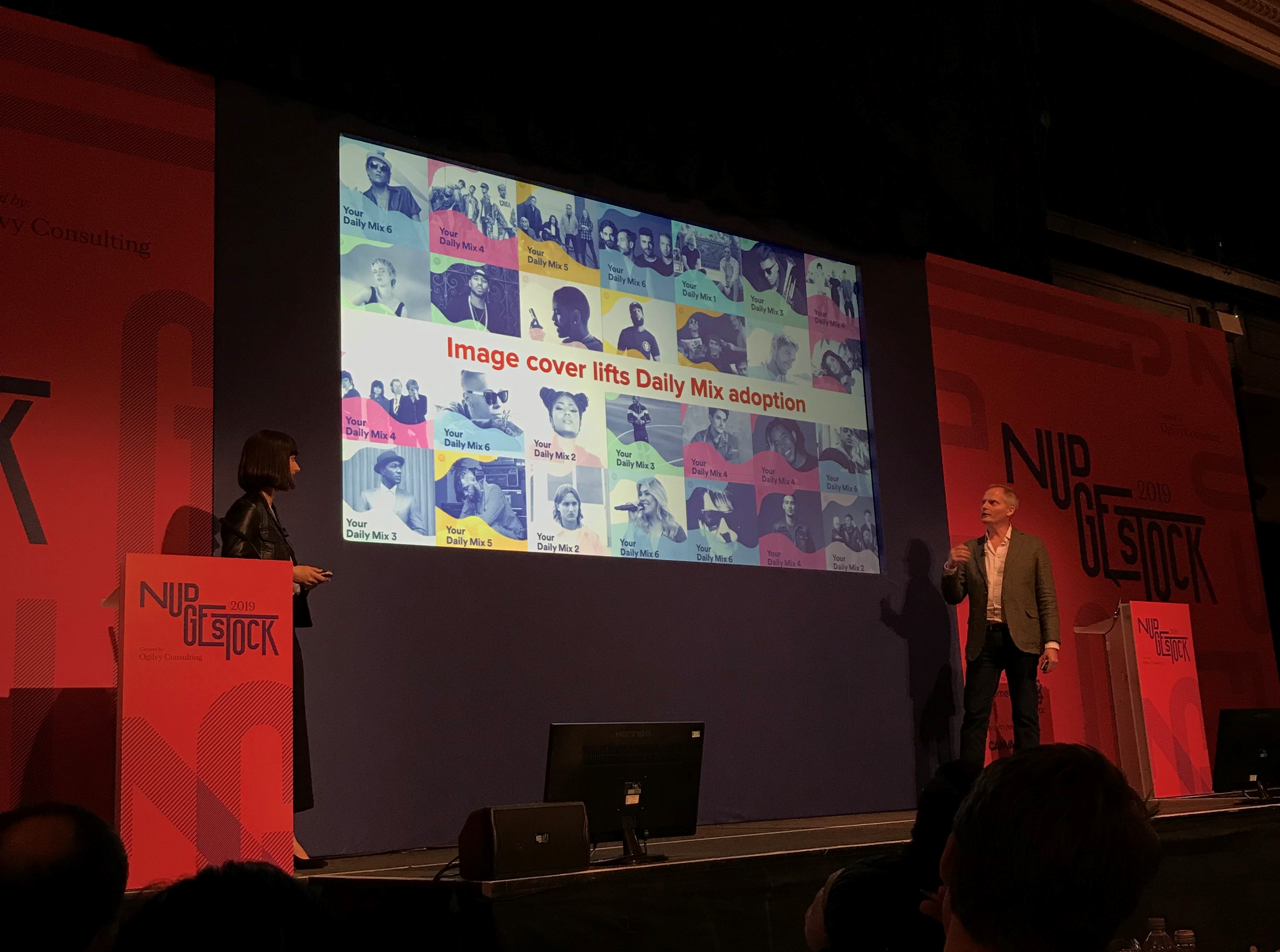
Are we leaving men and boys behind?
At Creative Equal’s RISE event, industry leaders consider how to reframe boys and men in marketing

Behavioural science can shift the dial when it comes to brand building and Ogilvy’s annual Nudgestock conference demonstrated the power of getting outside of the bubble.

The crewman who spotted the iceberg which sunk the Titanic was just a “single human data point” but his finding was nonetheless valid. Rory Sutherland, Vice Chairman of Ogilvy, neatly summed up the fallacy of ignoring our human instinct in pursuit of “big data”.
Sutherland was hosting the seventh annual Nudgestock festival, which featured an eclectic mix of speakers highlighting the role of behavioural science in challenging established marketing thinking.
Here are a handful of key takeaways from the day:

There is a huge danger in creating small, visible and virtuous acts.
Rory Sutherland
“The metrics we use make a big difference,” Sutherland explained, pointing to how misrepresentative measures such as miles per gallon, or Fahrenheit can appear. This is a state of play which he believes leaves the field wide open for a better messaging. Responding to a provocation from the audience that re-introducing plastic straws could be a positive thing because consumers’ feel one small act is enough, Sutherland suggested a pivot in approach.
“You can be more ambitious in what it is you ask people to do if you are not forcing them to do it,” he explained. “There is a huge danger in creating small, visible and virtuous acts like reducing plastic straws, that you miss the bigger picture. There is very little virtue signalling in getting a new boiler compared with a car.”
Sutherland argued that there is value in getting people to do good by stealth: “If your behaviour is good then the reason doesn’t really matter. It also means that you don’t get into the realms of moral offsetting where people do very small symbolic acts and then splash out on a big eco-holiday to reward themselves, flying long-haul.”

Adtech is creating an artifice of certainty for brands.
Tricia Wang
The fallacy of big data was tackled head on by Tricia Wang, a global tech ethnographer and the Co-Founder of Sudden Compass, an enterprise solutions firm specialising in customer data and insights.
According to Wang, despite the fact that 30% of CMO’s marketing budgets are dedicated to adtech, many marketing leaders don’t really know what impact it is actually having on their business objectives. Far from being “magical”, she explained, adtech has in fact created an “artifice of certainty for brands.”
“Adtech is speeding up old assumptions of people as avatars,” she said. A complex and opaque marketing ecosystem has served to devalue human insight. In effect brands consumed by measuring clicks have lost sight of the real drivers of customer behaviour.
Wang asks marketers to question “do I need to optimise, or do I need to grow?” For brands seeking the latter, what she terms “thick data” is the answer, an approach which is led by re-incorporating thick data insights back into the work. Likening the schism between creatives and martech providers as a fundamental divide akin to church and state, she warns that performance marketing has placed content at the very bottom of the value exchange.
Wang believes that the focus on big data at all costs, which has effectively reduced creativity to A/B testing, means that humanity and an understanding of human drivers has been lost in the process. Advocating “thick data” with context at its heart, Wang believes brands must focus on direct, unmediated data from consumers to capture their emotions and humanity, arguing the focus on big data has seen a loss of contextual insight in marketing.
“We’ve been putting too much pressure on machine intelligence to deliver and not enough on human insight,” she outlined. Sharing her experience working at Nokia, where company executives failed to see the rise of the smartphone as a legitimate focus for their business, she said “The organisation couldn’t fathom the data as all of their business models supported their existing structures and supply chain model.”

What we have to equalise is not people’s consumption; it is their productivity.
Sir Paul Collier
“Our society seems to have arrived at a point of extraordinary fragility and people are questioning if the future of capitalism is irrevocably broken,” warned Sir Paul Collier, Professor of Economics and Public Policy at the Blavatnik School of Government at the University of Oxford.
Collier explained how the 1980s has marked a schism in society; with the disparity between income and education increasingly rapidly. He believes this “ethical collapse” is down to three factors. Firstly, the rise of individualism replacing collective groups such as families and firms. Secondly a shift from obligations to rights. And finally, the rise of “economic man”, a dominant prescription of human beings who are greedy, selfish and lazy.
Collier underlined the tragedy of modern Britain, by pointing to Times commentator Janan Ganesh’s remark that being in London “feels like being shackled to a corpse.”
“We have gone through a very inhumane form of globalisation which is focused on the metropolis,” Collier explained. Pointing to London, which is unquestionably a wealth centre, he argued that growth has come at a price: “London is one of the least happy places in the country. It is incredibly inefficient at turning income into happiness.”
Yet he argued that it was too simplistic to argue that happiness is a better indicator of success than GDP. “People are not just consumers; people want to participate, to be purposeful,” he explained.

We need to get rid of the negative culture of blame in corporations which drives defensive decision making.
Gerd Gigerenzer
The toxic impact of negative company cultures was placed into sharp focus by Gerd Gigerenzer, Director of the Harding Centre for Risk Literacy. “Defensive decision making is made worse by a climate of fear in employment,” he explained. “The CEO who is thinking about how to protect their position than what is best for the company is not making the best decision.”
Gigerenzer urged the audience to think of their last ten decisions and estimate how many of them were motivated by defensive decision making. “Companies are losing so much money and fun because of this,” he added.
It is a behaviour which has had particularly devastating effects in professions such as medicine, where doctors practice defensive diagnosis in order to protect themselves from potential litigation.
“The tendency in large corporations is if a complex model does not work to make the model even more complex,” he argued, advocating that simplicity is often the answer. Pointing to the financial crisis he noted that the simple approach of “don’t buy financial products you don’t understand” would have prevented such a catastrophe.

If you take back control then smartphones are not the new cigarettes
Maths Mathisen
A goldfish attention span is 9 seconds; in comparison a human attention span in 2019 is just 8 seconds. This was the stark warning delivered by Maths Mathisen, CEO and Co-Founder of Hold. The Hold app launched in Norway to solve the reoccurring distraction of students checking their smartphones. Mathisen assessed the impact of consumers’ collective smartphone obsession on their general wellbeing, contrasting the ascendancy of the smartphone with the rise of cigarettes.
Yet, according to Mathisen, unlike cigarettes smartphones are not implicitly “bad” for consumers; we just need to control our usage and develop self-control. This shift is underway in Norway where half of all students in Norway are Hold customers with the average user spending four and a half hours a day “on hold”.

Organisations that set specific targets for diversity have better results.
Dr Stefanie K Johnson
The pivotal role of diversity in driving innovation and the business agenda was top of the agenda for Dr Stefanie K Johnson, Associate Professor of Leadership at the University of Colorado’s Boulder’s Leeds School of Business. Johnson shared how blind application processes have successfully increased the number of female scientists who get access to use the Hubble telescope.
However, she warned that the push towards diversity and inclusion must be embraced across the board, with tangible targets for change. “Women and people of colour are viewed negatively and reviewed as less competent when they talk about diversity,” she explained.

We moved from being gate keepers to gate openers.
Will Page
When 40 million consumers opted into their Discover Weekly playlists, Spotify didn’t know why. It was only through getting outside of the media bubble and working with the University of Chicago Booth School of Business that the very simple truth emerged: people are more receptive to new things on the first day of the week.
Will Page, Chief Economist at Spotify, urged the audience to look beyond the industry for inspiration and remember that “the opposite of a good idea can also be a good idea.” Looking ahead to the rise of hands-free and voice technology, he explained that the media industry is in the midst of a fundamental shift, a shift which is equal parts liberating and challenging. As he explained, “We have moved from being gate keepers to gate openers.”
Looks like you need to create a Creativebrief account to perform this action.
Create account Sign inLooks like you need to create a Creativebrief account to perform this action.
Create account Sign in